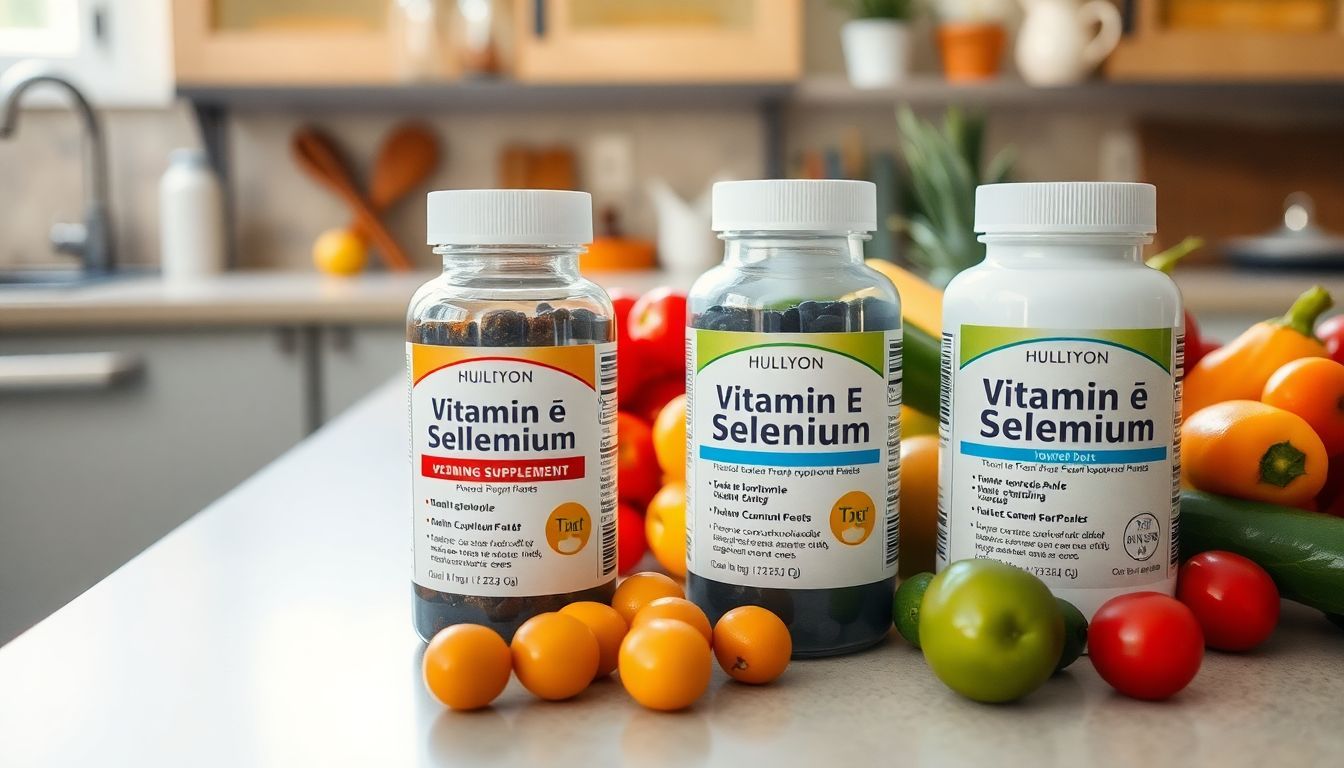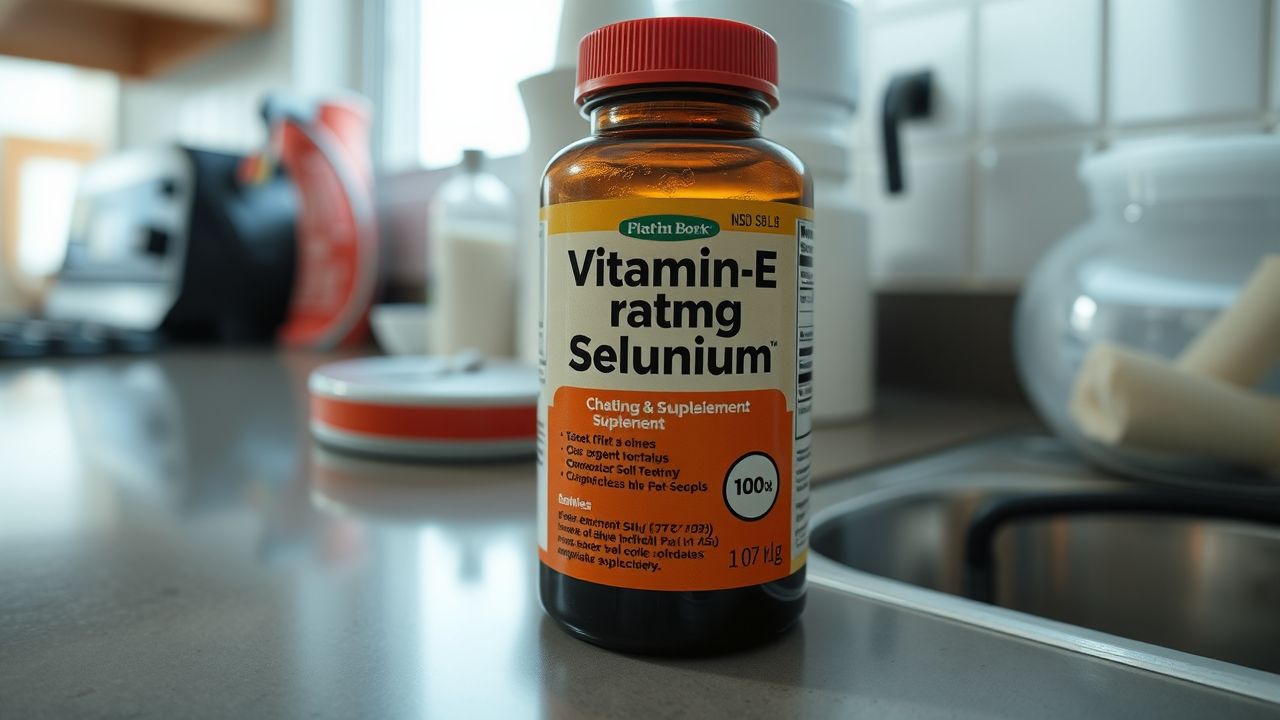Feeling let down by supplements promising big health benefits? A recent video shows that Vitamin E and Selenium might not work as well as many hoped. This blog digs into why these popular supplements fail to meet expectations.
Thank you for reading this post, don't forget to subscribe!Keep reading to uncover the truth!
Key Takeaways
- Studies show Vitamin E and Selenium supplements do not significantly reduce prostate cancer or prevent other chronic diseases.
- High selenium levels might harm the immune system instead of helping it, with little impact on T cells or natural killer cells.
- Poor absorption, low selenium levels, magnesium deficiency, or low-quality products may limit their effectiveness.
- Experts found these supplements underperformed compared to nutrients like Vitamin D or omega-3 fatty acids.
- Research highlights the need to question supplement claims and rely on proven scientific evidence for health benefits.
Focus on Vitamin E and Selenium Supplementation
Vitamin E and selenium supplements have gained attention for their potential health benefits. But recent findings show their outcomes might not be as promising as many hoped.
Outcomes of Vitamin E and Selenium supplementation
Studies reveal underwhelming results for vitamin e supplements and selenium supplements. They fail to meet expectations in cancer prevention and reducing chronic diseases like type 2 diabetes.
For example, prostate cancer rates showed no significant reduction among users of these supplements.
Some researchers suggest high selenium levels might even interfere with the immune system or lead to harm rather than benefits. The adaptive immune response, including t cells and natural killer cells, remains largely unaffected by these dietary supplement intakes.
Emphasis on underwhelming results
Vitamin E and selenium supplements showed disappointing results. Many hoped these would help with cancer prevention, especially prostate cancer. Instead, studies revealed minimal impact on reducing risks.
Expectations for stronger health benefits were not met.
“The promise of protection fell far short,” noted experts reviewing their effectiveness.
Though marketed as helpful, these supplements didn’t improve outcomes like boosting the immune system or lowering inflammatory markers significantly. Their role in preventing diseases such as heart disease or even common illnesses was underwhelming compared to other nutrients like vitamin D or omega-3 fatty acids.
Effectiveness of Vitamin E and Selenium
These supplements, once praised for cancer prevention, show mixed results. Studies reveal that Vitamin E and selenium may fall short in protecting against prostate cancer. Enthusiasts hoped these would boost the adaptive immune system or reduce inflammatory cytokines like tumor necrosis factor-alpha.
Benefits for cell-mediated immunity or macrophages remain unclear.
Selenium supplements don’t seem to improve immune responses as expected either. Lower magnesium levels or deficiencies in other nutrients might play a role here. Focus now shifts to reasons behind their limited success….

Lack of Expected Health Benefits
Vitamin E and selenium supplements often fall short of their promises. Despite being popular for cancer prevention, they show little impact on reducing risks like prostate cancer.
Potential reasons for lack of effectiveness
Low selenium levels in the body can reduce the effect of supplements. Certain groups may not absorb these nutrients well due to digestive issues or magnesium deficiency. Poor absorption limits their ability to offer benefits like cancer prevention.
The quality of vitamin E supplements also matters. Some products lack potency or don’t meet certified organic standards, lowering their impact on conditions like prostate cancer or cardiovascular disease.
Other factors, such as improper doses or interactions with other dietary supplements, could further weaken results—leading us to rethink expected health benefits next.
Conclusion
The results are clear: Vitamin E and Selenium supplements fall short of expectations. They don’t deliver the health benefits many hoped for, such as cancer prevention or stronger immunity.
This raises questions about their overall effectiveness. It’s a reminder to rely on science when choosing supplements for better health. Always ask if they truly work before adding them to your routine.
